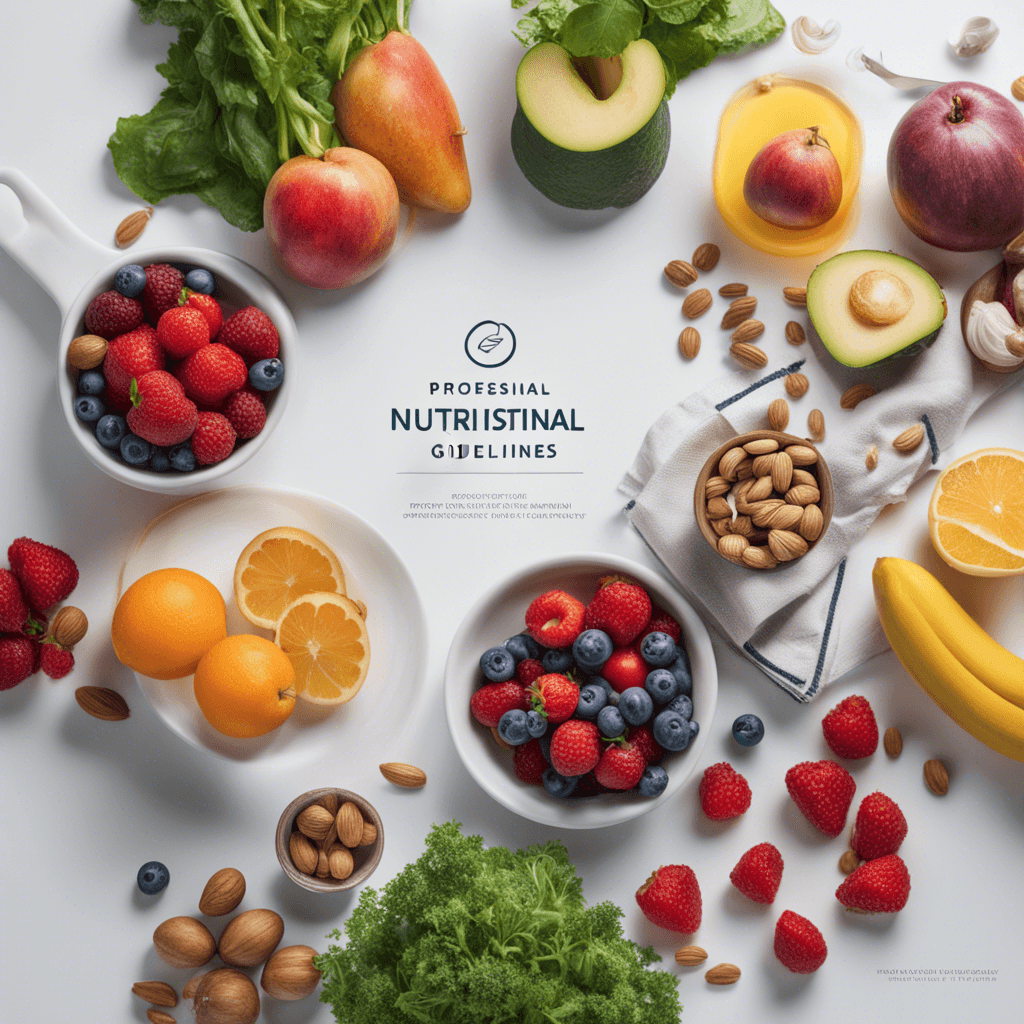Essential Nutritional Guidelines for Optimal Wellness
Attaining optimal wellness often requires a multidimensional approach that includes the adoption of nutritional guidelines, effective holistic methods for stress reduction, and a commitment to a healthy lifestyle. Nutrition plays a pivotal role in sustaining overall health, impacting everything from energy levels and immune function to mental clarity and emotional equilibrium.

Understanding the foundational elements of a wellness diet plan can empower individuals to make informed dietary choices that support a balanced life. Whether you’re exploring new healthy eating habits or seeking to refine your current diet, these principles offer a roadmap to achieving and maintaining vitality.
The Importance of a Balanced Diet
Components of a Balanced Diet
A balanced diet integrates all essential nutrients into daily meals to ensure the body functions optimally. Key components include carbohydrates, proteins, fats, vitamins, and minerals, which work together to maintain energy levels and promote growth and repair. For instance, whole grains provide carbohydrates for energy, while nuts and seeds provide healthy fats vital for brain function.
Incorporating a variety of foods that meet daily nutritional needs not only supports bodily functions but also minimizes the risk of chronic diseases. Lean proteins from sources such as fish, skinless poultry, or beans can enhance muscle maintenance, while colorful fruits and vegetables provide the necessary antioxidants and vitamins to boost immunity.
Balanced Diet Tips
To achieve a balanced diet, it can be helpful to follow specific tips. First, aim to fill half of your plate with fruits and vegetables at each meal, prioritizing seasonal and organic varieties for maximal nutrient retention. Second, vary your protein sources throughout the week to provide necessary amino acids without over-relying on any single type. Finally, consider the portion sizes and the balance of macronutrients on your plate to avoid overconsumption of any single category.
Understanding Nutritional Labels
Navigating nutritional labels can be intimidating, yet understanding them is crucial for maintaining a balanced diet. Key elements to look for include serving sizes, percentages of recommended daily values, and contents of sugars, trans fats, and sodium. For a more informed choice, prioritize foods with high fiber content and minimal added sugars, as these aspects significantly contribute to sustained energy levels and heart health.
Incorporating Holistic Wellness Practices
Effective Holistic Methods for Stress Reduction
Effective holistic methods for stress reduction are essential components of optimal wellness. Practices such as mindfulness meditation, yoga, and tai chi not only help in reducing stress but also improve mental clarity and emotional stability. For example, committing to a daily meditation practice can significantly lower cortisol levels, the hormone associated with stress, while enhancing focus and resilience.
Additionally, integrating practices such as deep breathing exercises or progressive muscle relaxation can support the body’s relaxation response, thus reducing the physiological effects of stress. These techniques can be easily incorporated into daily routines; for instance, a simple five-minute breathing session during lunch breaks can leave you feeling reenergized and ready to tackle the rest of your day.
Holistic Nutrition Approaches
Holistic nutrition goes beyond simply choosing healthy foods—it involves understanding and respecting the interconnectedness of food and lifestyle choices. This approach promotes the consumption of organic, whole foods that retain their natural nutrients. Preparing meals at home using fresh ingredients not only preserves the nutrient content but also allows for the customization of meals to individual dietary requirements and preferences.
Practical Applications for Holistic Living
Individuals embarking on a holistic wellness journey can benefit from practical applications such as meal prepping to facilitate more nutritious eating habits. By setting aside time each week to prepare healthy meals, it becomes easier to resist the temptation of convenience foods laden with unhealthy additives. Moreover, complementing a whole-foods diet with ample hydration, regular physical activity, and adequate rest further supports holistic wellness, ensuring that all aspects of health are addressed synergistically.

Frequently Asked Questions
What are essential nutrients, and why are they important?
Essential nutrients include carbohydrates, proteins, fats, vitamins, and minerals necessary for the body to function correctly. They are vital because they provide energy, support the immune system, promote growth and repair, and maintain overall health. For example, vitamin C is crucial for immune health, while calcium is important for bone strength.
How can I develop healthy eating habits?
Developing healthy eating habits involves planning meals, incorporating a variety of foods, and practicing moderation. Start by creating a meal plan that includes diverse food groups and avoids processed items. Also, try to include regular meal times, focus on mindful eating, and listen to your body’s hunger cues, which can help in naturally regulating portion sizes.
What is a wellness diet plan?
A wellness diet plan is a structured approach to eating that emphasizes whole foods, nutrient density, and balance across macronutrients to support overall health. It typically includes a variety of fruits and vegetables, lean proteins, complex carbohydrates, and healthy fats. Consultation with a nutritionist could help tailor the plan to meet your specific health goals and needs.
Are supplements necessary for maintaining optimal wellness?
While whole foods should primarily supply essential nutrients, supplements can help fill dietary gaps, particularly if certain nutrients are hard to obtain through diet alone. For example, individuals with limited sun exposure may benefit from vitamin D supplements. However, it’s advisable to consult with a healthcare provider to determine specific needs before starting any supplementation.
Can stress affect my dietary choices and nutritional health?
Yes, stress can significantly impact dietary choices and nutritional health. During periods of stress, individuals may reach for comfort foods high in sugar and fat, which can lead to poor nutrition. Adopting effective holistic methods for stress reduction can help mitigate these effects and promote healthier choices, supporting overall nutritional and mental well-being.
Conclusion
Applying essential nutritional guidelines is a cornerstone of achieving optimal wellness. By focusing on maintaining a balanced diet rich in diverse, nutrient-packed foods, individuals can significantly improve their physical, mental, and emotional health. Coupling this with effective holistic methods for stress reduction further aids in nurturing a balanced lifestyle.
As we navigate the complexities of modern living, prioritizing health through thoughtful dietary choices and wellness practices offers a sustainable path toward vitality. Embracing healthy nutrition as part of a broader wellness journey is not just about a singular focus on diet but rather understanding and integrating varied elements that contribute to the theatre of life.
Ultimately, the commitment to optimal wellness is an ongoing process, encouraging a flexible adaptation to evolving needs and circumstances. By cultivating healthy eating habits and embracing holistic wellness practices, you can empower yourself to lead a fulfilling and healthy life.
Suggested Video Topics
To further enhance your understanding of this subject, consider exploring the following video topics:
- The Role of Macronutrients in a Balanced Diet
- Holistic Methods for Stress Reduction: A Practical Guide
- Understanding and Interpreting Nutritional Labels for Better Choices


